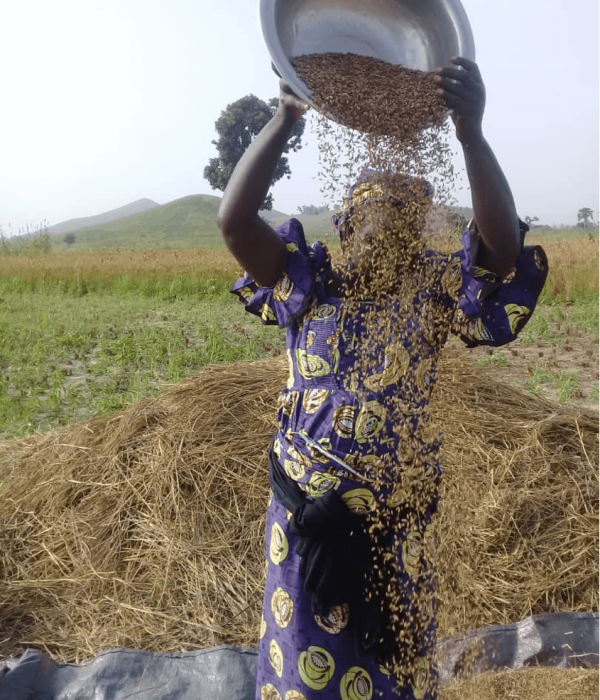Impact
At Ubuntu Farms, we’re working towards transforming the lives of smallholder farmers in West Africa by fostering sustainable growth in the agri-economy. Our methodology promotes sustainable and ethical farming practices, a cornerstone of our community-focused agricultural development initiatives. These programs have significantly impacted farmers’ livelihoods and, by extension, the agri-economy within rural communities.
We have implemented innovative solutions such as using biogas for cooking in these communities, contributing to reducing greenhouse gas emissions and enhancing the health of the farmers. Furthermore, our efforts towards optimizing the value chain have increased productivity, improved product quality, and higher profits for the farmers.
This bolsters their livelihoods and plays a significant role in the socio-economic development of the rural communities they’re a part of.



Agriculture is a critical pillar in Africa’s economic growth, offering employment for millions and significantly contributing to the continent’s gross domestic product. Yet, smallholder farmers within rural communities encounter numerous hurdles that impede their productivity and income potential. Issues span from the broad-reaching effects of climate change to infrastructural deficiencies, restricted market access and credit options, and a shortage of knowledge and resources.
At Ubuntu Farms, we are deeply committed to uplifting these farmers. We champion sustainable and ethical farming practices that enhance productivity and prioritize environmental stewardship, societal upliftment, and economic expansion.
Effect on Farmers’ Lives: Ubuntu Farms’ community-focused agricultural advancement program has made a substantial difference in the lives of smallholder farmers in rural communities. Our emphasis on education, resource provision, and innovation has increased productivity and product quality, thus enhancing farmers’ profitability. Furthermore, by facilitating connections between smallholder farmers and agribusiness processors, we’ve improved product quality, boosted yields, and provided access to more lucrative markets, resulting in more significant income for farmers.
Our introduction of biogas for cooking has substantially impacted both the farmers’ lives and the environment. We educate these communities on generating biogas from organic waste, including livestock manure, crop residues, and kitchen waste. This gas is used for cooking, lighting, and other energy needs. This sustainable approach aids in curbing greenhouse gas emissions, improving health outcomes for the farming community, and reducing cooking costs, leading to significant savings for farmers.



Impact on Rural Communities: The influence of Ubuntu Farms on rural communities has been nothing short of transformative. Our initiatives have fortified the Agri-economy, bolstered farmers’ livelihoods, and driven social and economic development. Our steadfast commitment to sustainable and ethical farming has also safeguarded the environment and reduced greenhouse gas emissions. Innovative solutions like biogas have also fostered better health outcomes for farming families.
Conclusion: The impact of Ubuntu Farms on smallholder farmers in West Africa has indeed been groundbreaking. Our unwavering commitment to uplift farmers through education, resources, and innovation has changed lives, solidified the Agri-economy, and promoted socio-economic growth in rural communities. For instance, introducing biogas for cooking has lowered greenhouse gas emissions and improved the health of farmers. Simultaneously, our endeavors to enhance the value chain have boosted productivity, product quality, and farmers’ profits.
We continue to uphold our commitment to sustainable and ethical farming practices and empowering smallholder farmers. We believe this is the path to a prosperous future for everyone involved.
